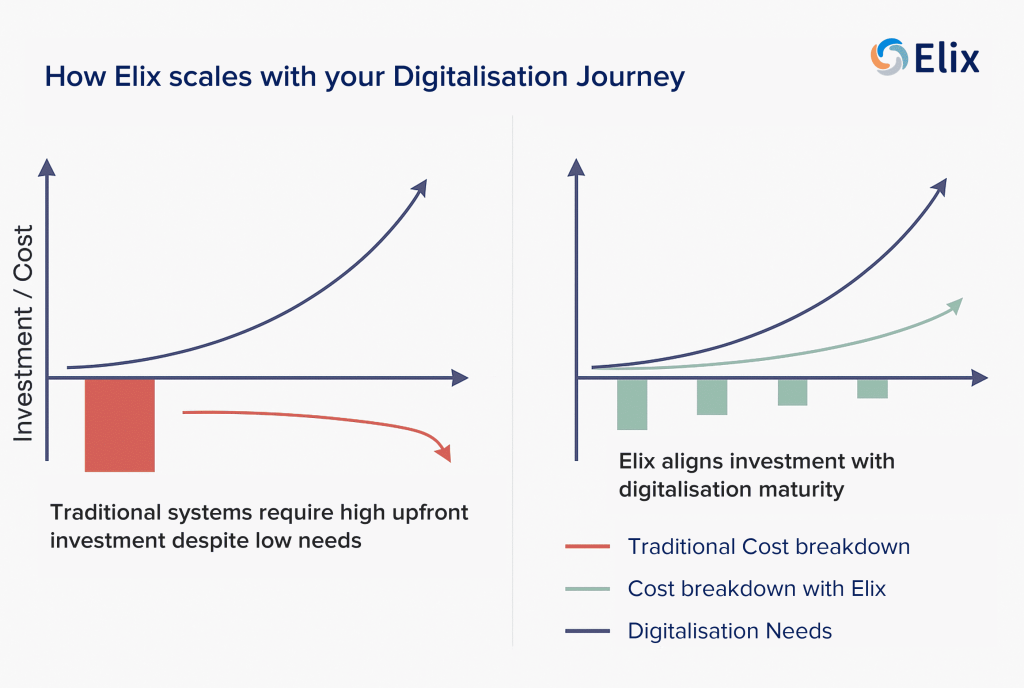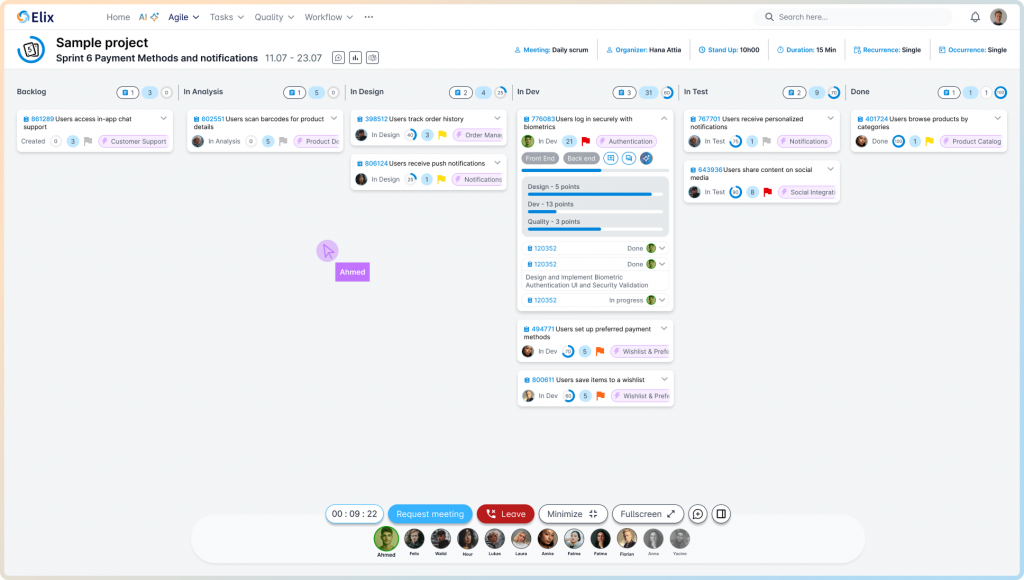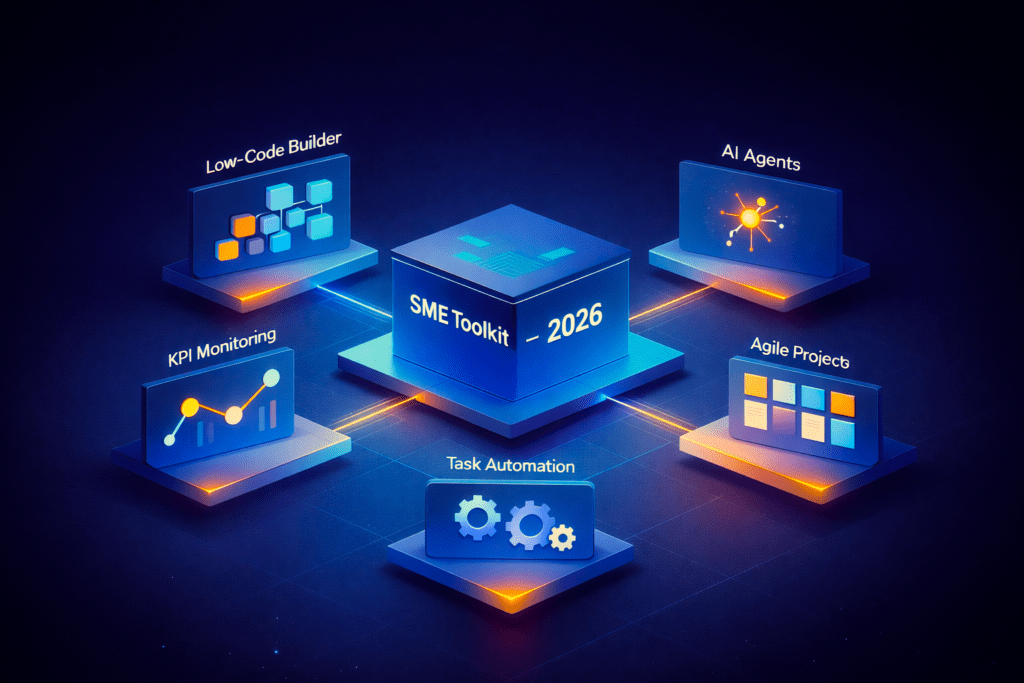The future of ERP is Modular : How Elix empowers Organizations
Blog
·
04/07/2025
·
In an age where agility, modularity, and user-centric interface are non-negotiable, organizations -across both private and public sectors- are moving away from one-size-fits-all ERP systems, seeking platforms that enable faster iteration, decentralized collaboration, and scalable growth.
This is where Elix comes in : a next-generation, modular Business Management Suite designed to meet the evolving needs of modern organizations.
Why businesses need modular, Agile systems
While traditional enterprise systems have provided structure for decades, they often lack the agility needed to support modern workflows. Today, teams need tools that evolve with them, not systems that slow them down.
According to McKinsey, over 70% of digital transformation projects fail, often due to rigid legacy systems, among other factors.
Today, many organizations and companies face common limitations :
- Costly, time-consuming implementations and deployments
- Rigid architectures that resist customization
- Limited scalability across departments and functions
- Fragmented tools that isolate data, documents and workflows
To stay competitive, organizations now require platforms that are modular, lightweight, and easy to adapt, without compromising on functionality or security.
Elix: The modular “ERP alternative”
Designed from the ground up to support dynamic operations, Elix is a smart and scalable Business & Project Management platform that lets you choose exactly the features you need, when you need them.
No unnecessary features, no delays, no legacy complexity.
1. Built on modularity
Elix consists of independent micro-applications (modules) that can be added or removed based on your organization’s unique needs. From project management and HR to IT and QA Management, every module is seamlessly integrated but independently operable.
➡️Benefit : Pay only for features you need. Scale as you grow.
The graphic below illustrates how Elix supports gradual scaling and sustainable digital adoption, compared to traditional systems with high initial costs :

2. Optimized for Agile teams
Elix offers built-in tools for ticketing, Backlog management, sprint planning, budget control and real-time collaboration. It’s built for agile frameworks like Scrum, Kanban, or hybrid models, so your teams can work the way they want.
➡️Benefit : Boost team performance, accelerate project delivery and adapt quickly to changing priorities.

3. Integrated Office Management
Elix goes beyond traditional ERP functionality by incorporating everyday office essentials into its core. Manage documents with version control, maintain a centralized knowledge base, publish internal updates/news, and create a fully customizable Wiki, all from one place.
➡️Benefit : Streamline internal communication, reduce administrative overhead and keep your teams & departments aligned.
What makes Elix the right fit for Modern Organizations
Architecture : Microservices, microfrontends
Average setup time : 2-3 days
Flexibility : High
Pricing model : Module-based, scalable
Interfaces : Modern & intuitive
Ideal for : Companies/ institutions of all sizes
User adoption rate : > 80% in the first month
Customization time : Hours to days
The future of ERP is modular, Agile, and Human-centered
Forward-thinking CTOs, CEOs and decision-makers are realizing that success depends on systems that are built for change, not built to resist it.
Elix isn’t a traditional ERP, and that’s exactly the point. It’s a modular, flexible platform built for organizations that need to move fast, scale efficiently, and empower every team without the technical overhead.
In short : Elix delivers the tools you need, without the complexity you don’t.
Content
Instead of one central brain, Multi-Agent Systems (MAS) offer a different approach. Intelligence is distributed across multiple autonomous agents that collaborate, adapt, and act in parallel. For business management, this enables faster decisions, higher resilience, and measurable efficiency gains.
By 2026, small and medium-sized enterprises (SMEs) will face a tougher, faster, and more complex business environment than ever before. To stay competitive, SMEs must move away from fragmented tools and rigid software toward flexible, intelligent, and modular platforms. Here are the 5 must-have features that will define the modern SME toolkit in 2026.
In any organization, work can feel like a tangled mess. Tasks are missed, deadlines are a suggestion, and no one is quite sure who's responsible for what. This state of "chaos" isn’t because your team lacks skill or effort. It’s because your internal workflows lack structure. A well-structured workflow management system can transform that chaos into clarity, improving team productivity, business efficiency, and long-term scalability.
If you're currently juggling disconnected systems
or
exploring ERP alternatives ..


